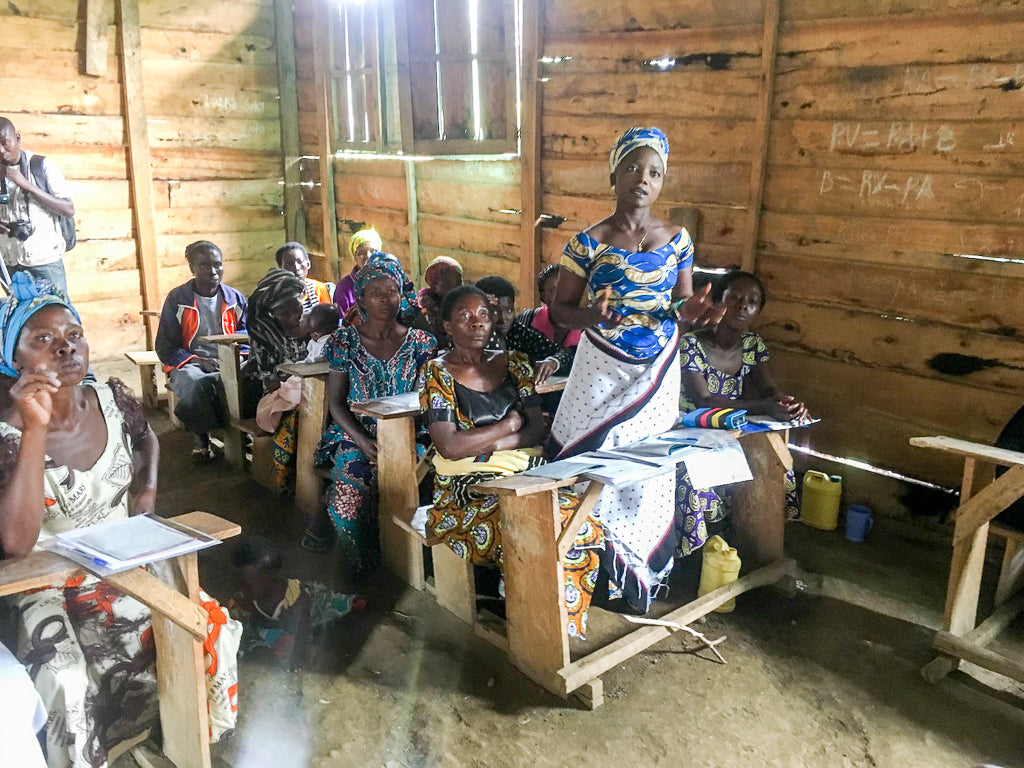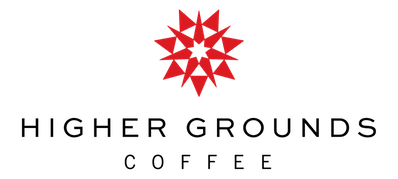
This post comes to us from board members of On the Ground, Higher Grounds' partner nonprofit working on sustainable development in coffee growing regions.
//
In 2010, the Journal of the American Medical Association reported that 39.7% of women in eastern Congo reported they'd been impacted by sexual violence.
However, communities partnering with OTG are working to change cultural norms through gender equity training, gender-based violence workshops, and international coffee events. These educational and collaborative opportunities are reshaping the Congolese coffee sector into an inclusive industry, which values the input, views, and accomplishments of all members equitably. OTG and our partners believe that sustainable coffee only starts where inequity ends.
Ever since our inaugural event, Run Across Congo, where a group of inspiring woman ran 5 marathons in 5 days across eastern Congo, numerous farming communities in the Democratic Republic of Congo’s South Kivu region have partnered with OTG to create gender equity programs and expand the role of women in regional coffee production. Women, despite being responsible for up to 80% of Congolese coffee farm labor, are undervalued and under-compensated, rendering them vulnerable to sexual violence, which has been systematically utilized in eastern Congo as a weapon of war to destabilize communities. Few have an equal voice in basic household finances, and even fewer own property or comprise leadership roles in local governments or coffee cooperatives. Empowering women is not only the best defense against sexual violence, but enhances economic opportunity and helps the entire family unit move from simply day to day survival to one with the foundation needed to build security, opportunity, and a plan for their future. The gender equity programs we organize offer the foundation women need to prosper, benefiting both themselves, their families, and their community.
Our programs are overseen by our Congolese staff in Minova, South Kivu Province–the epicenter of the conflict zones. Programming consists of equity training, alternative income generating activities, and credit and savings groups as part of a continuum of support. And, most importantly, family life planning workshops include the husbands, helping the couple put together a life plan that identifies hurdles, sets goals, and mutually agreed upon outcomes. These year-long programs will train up to 225 women farmers. Thanks to innovative cost-saving solutions developed by our team in the Congo, the core training will only cost around $250 per woman for the entire year. There are 225 women on our waiting list. We will initiate the programs within 30 days of the completion of this fundraiser. If we don’t make the fund raising goal, we’ll take as many women as we can and continue to raise money. So your donation, and any combination of donations that add up to $250, will assure the training is available to one of the women.
To capture the essence of what motivates us, here’s an insightful story told by one of our board members during one of his earlier visit to the communities where we work:
Managing projects around gender equity and sexual violence in the Eastern Democratic Republic of Congo continues to be an enlightening journey. Yet in all those years, it was a short conversation with a victim of rape that shifted my orientation early on in my work. The wisdom came from a woman that manages our gender equity training in this rape capital of the world. In a not so uncommon occurrence for me, I found myself fumbling for the right words in a feeble attempt to bridge the gap of culture, circumstance, language, and life experience by saying something like, “There aren’t enough prisons in Congo to provide justice for the millions of rape victims.” After a short pause, this previously shy and deferential woman looked me deeply in the eyes and said, “Do you not understand that my rapists are victims too?”
There was no feeble attempt on her part to clearly communicate that these are wounded souls, many of them forced into militia or the military as children. She was clear that they require and deserve just as much healing, support, and sympathy as any other victim and she was certain that her work would not be successful were it not inclusive of the rapists, the husbands, and the sons. While I already had all the inspiration I needed to keep putting my life on hold and getting on planes to there, this moment gave me more than I need for this lifetime. The wisdom that flows from tragedy and suffering is something I may never know if I’m fortunate enough. I’m envious of the wisdom, and in awe of the path many endure to acquire it. Yet bearing witness to it is the fuel that keeps me engaged, and why I support the work of On The Ground in the Congo.
Timothy Young
Founding Board Member, On The Ground
To support On the Ground's important work in farming regions, you can make a donation here.
